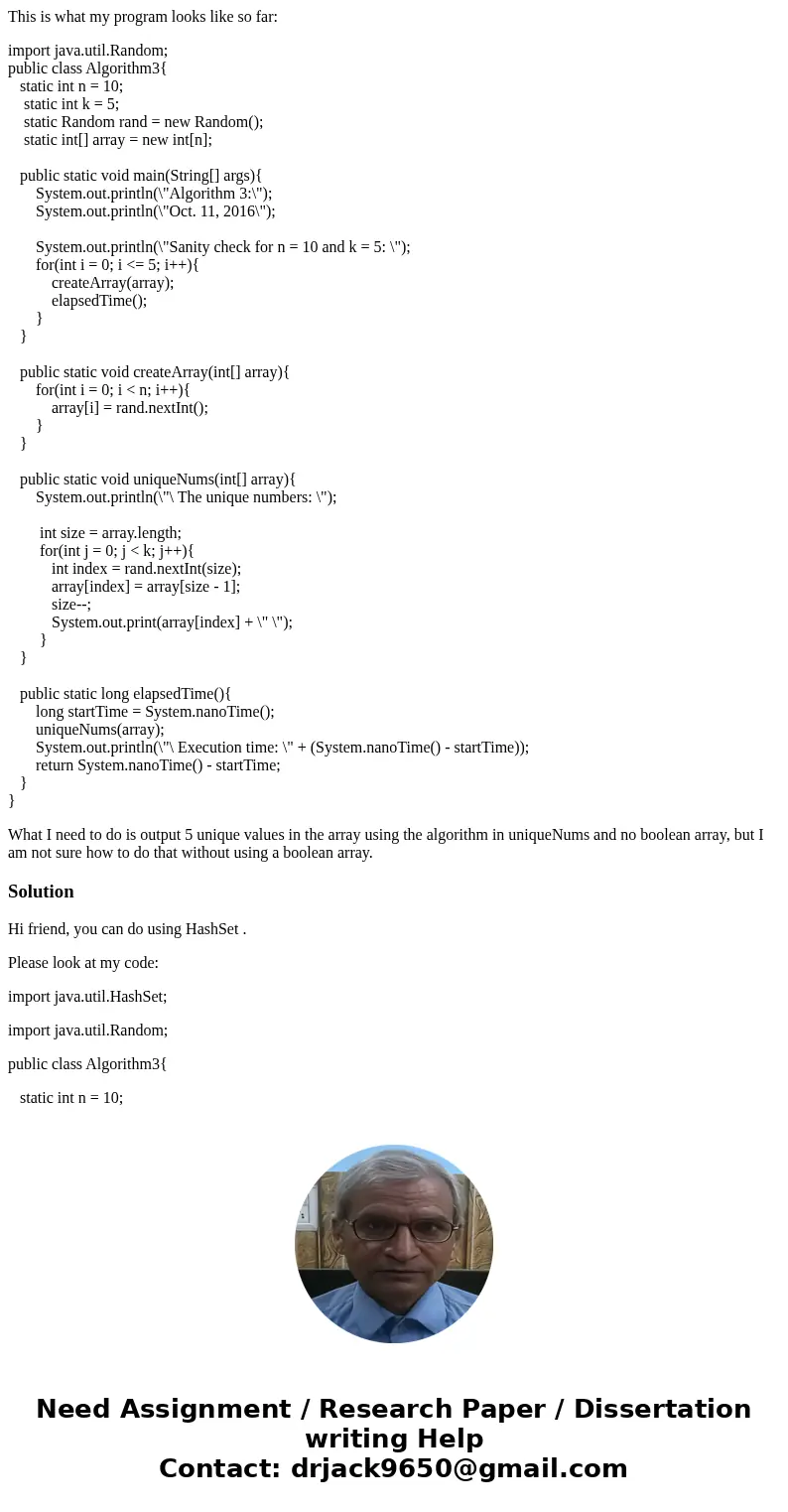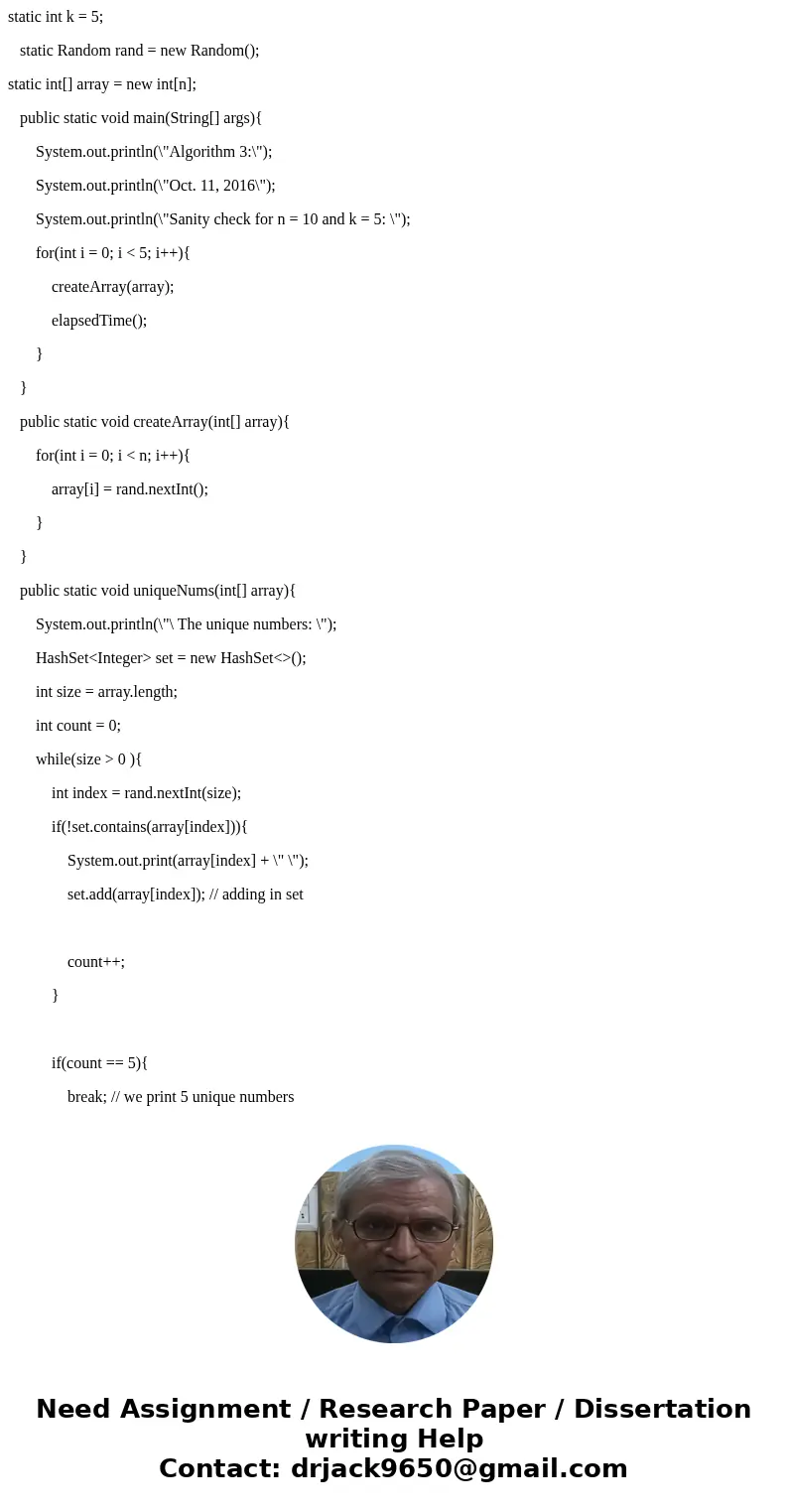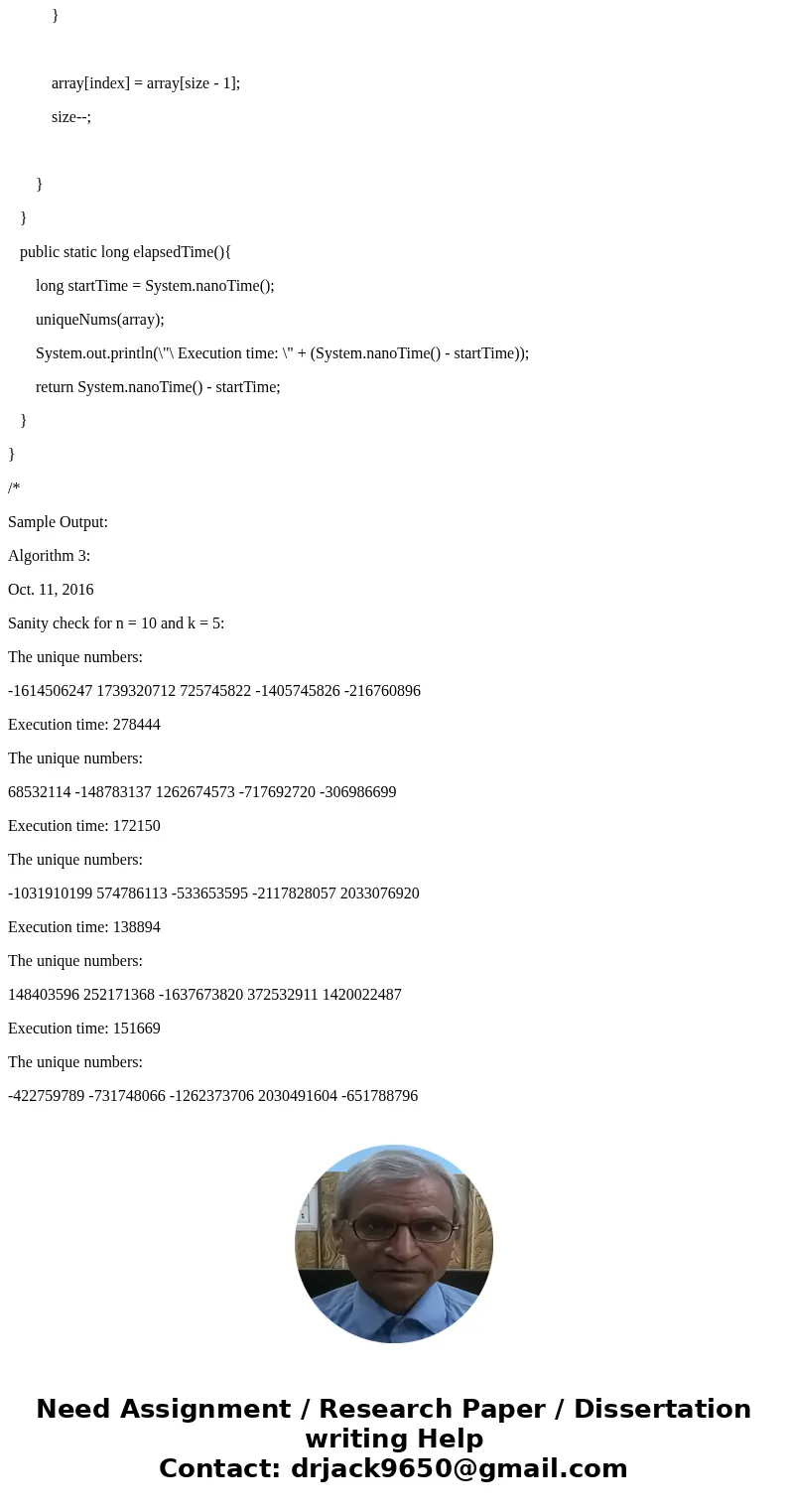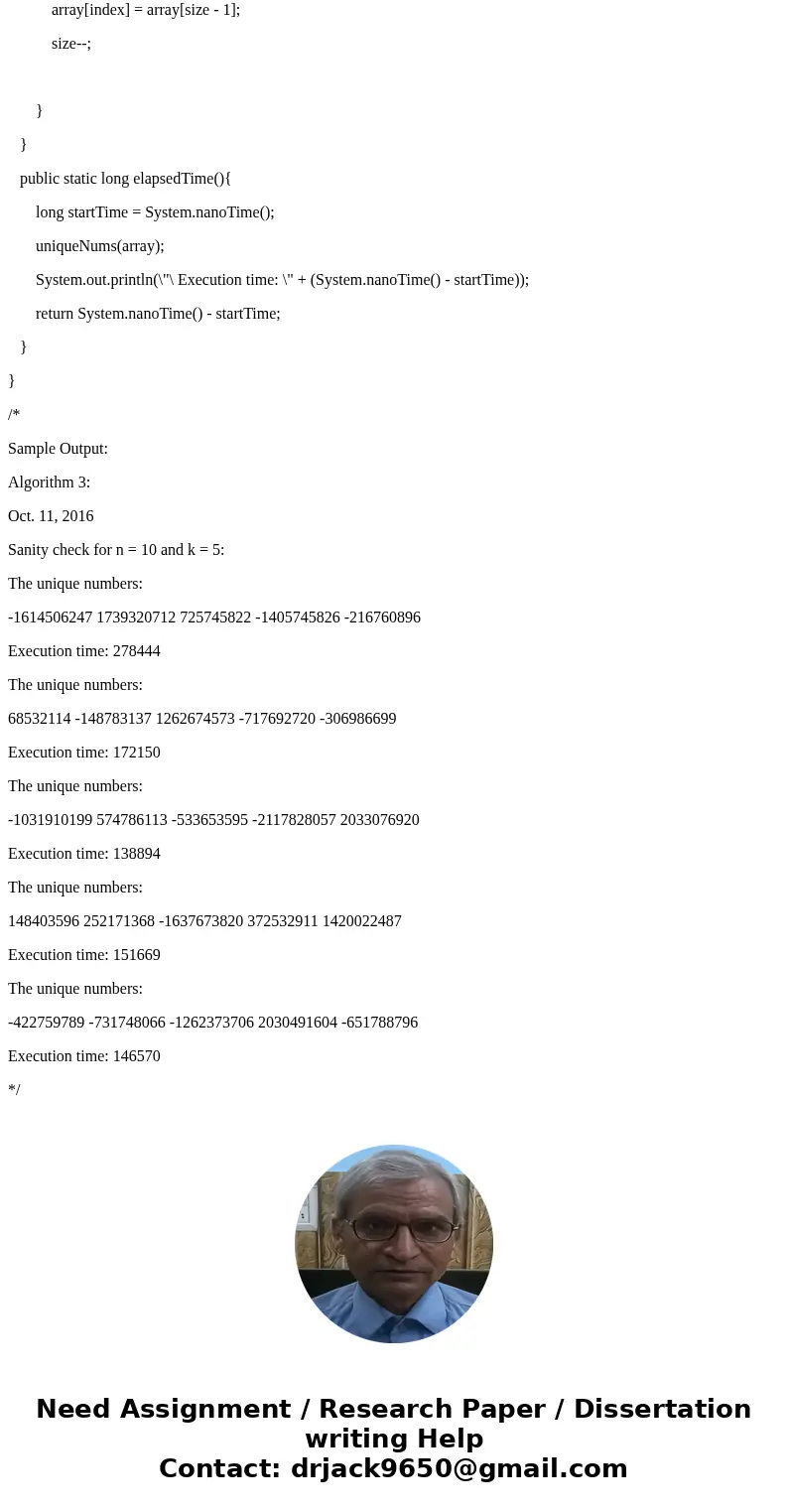This is what my program looks like so far import javautilRan
This is what my program looks like so far:
import java.util.Random;
public class Algorithm3{
static int n = 10;
static int k = 5;
static Random rand = new Random();
static int[] array = new int[n];
public static void main(String[] args){
System.out.println(\"Algorithm 3:\");
System.out.println(\"Oct. 11, 2016\");
System.out.println(\"Sanity check for n = 10 and k = 5: \");
for(int i = 0; i <= 5; i++){
createArray(array);
elapsedTime();
}
}
public static void createArray(int[] array){
for(int i = 0; i < n; i++){
array[i] = rand.nextInt();
}
}
public static void uniqueNums(int[] array){
System.out.println(\"\ The unique numbers: \");
int size = array.length;
for(int j = 0; j < k; j++){
int index = rand.nextInt(size);
array[index] = array[size - 1];
size--;
System.out.print(array[index] + \" \");
}
}
public static long elapsedTime(){
long startTime = System.nanoTime();
uniqueNums(array);
System.out.println(\"\ Execution time: \" + (System.nanoTime() - startTime));
return System.nanoTime() - startTime;
}
}
What I need to do is output 5 unique values in the array using the algorithm in uniqueNums and no boolean array, but I am not sure how to do that without using a boolean array.
Solution
Hi friend, you can do using HashSet .
Please look at my code:
import java.util.HashSet;
import java.util.Random;
public class Algorithm3{
static int n = 10;
static int k = 5;
static Random rand = new Random();
static int[] array = new int[n];
public static void main(String[] args){
System.out.println(\"Algorithm 3:\");
System.out.println(\"Oct. 11, 2016\");
System.out.println(\"Sanity check for n = 10 and k = 5: \");
for(int i = 0; i < 5; i++){
createArray(array);
elapsedTime();
}
}
public static void createArray(int[] array){
for(int i = 0; i < n; i++){
array[i] = rand.nextInt();
}
}
public static void uniqueNums(int[] array){
System.out.println(\"\ The unique numbers: \");
HashSet<Integer> set = new HashSet<>();
int size = array.length;
int count = 0;
while(size > 0 ){
int index = rand.nextInt(size);
if(!set.contains(array[index])){
System.out.print(array[index] + \" \");
set.add(array[index]); // adding in set
count++;
}
if(count == 5){
break; // we print 5 unique numbers
}
array[index] = array[size - 1];
size--;
}
}
public static long elapsedTime(){
long startTime = System.nanoTime();
uniqueNums(array);
System.out.println(\"\ Execution time: \" + (System.nanoTime() - startTime));
return System.nanoTime() - startTime;
}
}
/*
Sample Output:
Algorithm 3:
Oct. 11, 2016
Sanity check for n = 10 and k = 5:
The unique numbers:
-1614506247 1739320712 725745822 -1405745826 -216760896
Execution time: 278444
The unique numbers:
68532114 -148783137 1262674573 -717692720 -306986699
Execution time: 172150
The unique numbers:
-1031910199 574786113 -533653595 -2117828057 2033076920
Execution time: 138894
The unique numbers:
148403596 252171368 -1637673820 372532911 1420022487
Execution time: 151669
The unique numbers:
-422759789 -731748066 -1262373706 2030491604 -651788796
Execution time: 146570
*/




 Homework Sourse
Homework Sourse